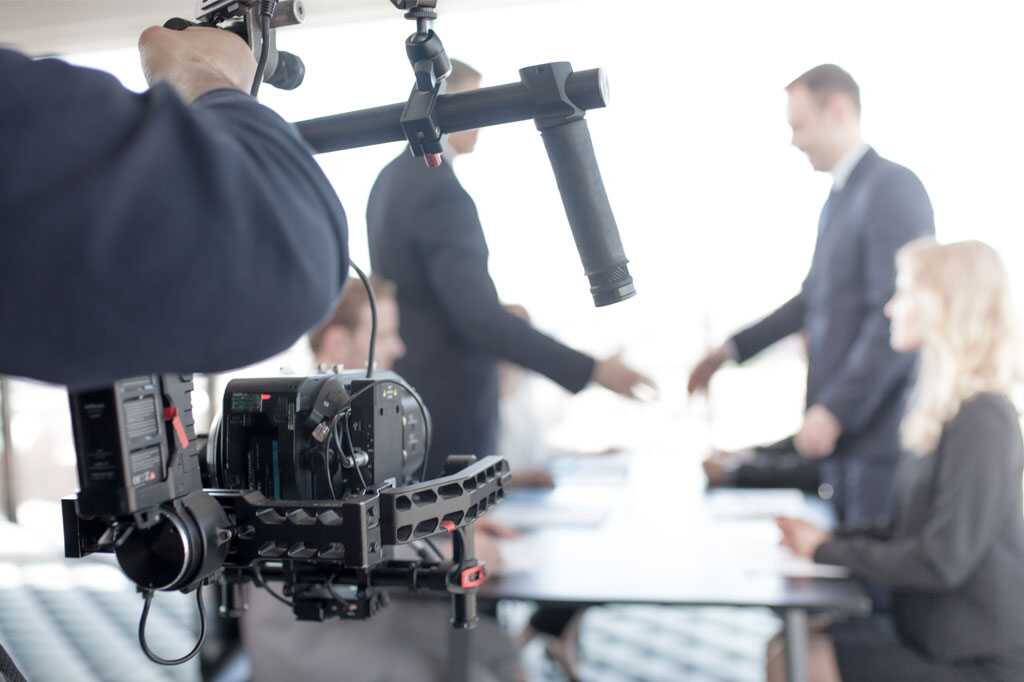The Relevance of Lawful Video Depositions in Modern Legal Solutions: What You Should Know
Legal video clip depositions have come to be crucial in today's legal landscape. They offer a multidimensional sight of witness testaments that standard transcripts simply can not match. By recording both non-verbal and verbal communication, these depositions enhance the total understanding of a witness's reputation. Nonetheless, the efficiency of video depositions depends upon different factors, including conformity with legal criteria and best techniques (legal video depositions). Checking out these components exposes their real importance in contemporary lawful services
What Are Legal Video Clip Depositions?
Legal video depositions act as an essential device in the lawsuits process. They involve recording witness testaments in a video clip layout, recording both non-verbal and verbal interaction. This method enables lawyers to record the disposition, expressions, and responses of witnesses, offering a richer context for the testimony. Usually performed in a controlled setting, these depositions are led by lawyers that ask inquiries while a court reporter documents the discussion. The resulting video clip can be crucial for test preparation, as it makes it possible for legal representatives to assess the reputation of witnesses and improve their strategies. Additionally, lawful video clip depositions can be used in different legal contexts, varying from civil conflicts to criminal situations. The auditory and visual aspects of video depositions improve the discussion of proof, making it a necessary part in the contemporary lawful landscape. On the whole, they add significantly to the performance and effectiveness of legal procedures.

Benefits of Video Clip Depositions Over Typical Approaches
Video clip depositions provide many benefits compared to standard techniques of taking witness statements. One significant benefit is the ability to capture both visual and audio elements, providing an extra detailed document of the witness's declarations. This double style improves clarity and allows lawyers to reference details subtleties during trial prep work. Furthermore, video depositions help with remote participation, making it less complicated for witnesses that might be inaccessible for in-person appearances due to geographical restraints or health and wellness issues.Moreover, video clip depositions can speed up the overall deposition process, decreasing the moment and prices related to travel and logistics. They additionally enhance availability, as tape-recorded depositions can be conveniently shared among lawful teams and referenced at any kind of time. This benefit adds to much better instance administration and prep work. In general, video depositions stand for a modern-day, efficient strategy to gathering witness testaments, lining up with the developing demands of the legal career.
The Role of Body Movement and Tone in Testimonies

In lawful video depositions, body language and tone play crucial duties in conveying a witness's integrity and trustworthiness. Nonverbal cues can supply understandings right into a witness's mood, influencing exactly how their statement is regarded. Recognizing the impact of these aspects is necessary for lawyers and jurors alike when evaluating the reliability of a statement.
Nonverbal Communication Insights
While spoken communication is commonly stressed in lawful testaments, nonverbal signs such as body movement and tone play an essential duty in sharing reliability and emotion. Onlookers of depositions may note that a witness's posture, gestures, and faces can considerably affect assumptions of integrity. For circumstances, regular eye call might signify self-confidence, while preventing look might suggest dishonesty or pain. The tone of voice-- its quantity, pace, and pitch-- can give feelings of genuineness or unpredictability. Attorneys should be in harmony with these nonverbal signals, as they usually supply vital context that complements talked words. Comprehending these subtleties can improve the efficiency of depositions and influence the result of legal proceedings.
Psychological Tone Impact
The emotional tone conveyed throughout legal testaments significantly influences exactly how a witness is perceived. Body movement, vocal inflections, and faces play essential functions in shaping the story of a statement. A witness exhibiting self-confidence through consistent eye contact and a tranquil tone can infuse a feeling of dependability and engagement. Alternatively, signs of anxiousness, such as fidgeting or an unstable voice, might lead to apprehension regarding their account. The nuances of psychological expression can influence the interpretation of realities, making it important for legal professionals to recognize these cues. In video clip depositions, the visual and acoustic parts combine, highlighting the value of this content emotional tone in communicating genuineness and reliability within the legal procedure.
Credibility and Dependability
An essential consider establishing integrity and reliability throughout testimonies lies in the witness's body language and intonation. Observers typically count on non-verbal signs-- such as eye call, posture, and motions-- to analyze a witness's sincerity. A witness who maintains eye contact and displays open body language might be regarded as even more straightforward and trusted than one that stays clear of eye call or shows up closed off. Additionally, tone of voice plays an essential duty; a constant, tranquil tone can strengthen the trustworthiness of the statement, while changes in pitch or volume might elevate questions. Ultimately, the mix of body movement and vocal tone significantly influences just how a witness's declarations are received and translated in a legal context.
Best Practices for Performing Video Depositions
Conducting video clip depositions needs careful preparation and execution to guarantee a efficient and clear presentation of testament. It is essential to pick a peaceful, well-lit area to lessen distractions and safe optimal video clip high quality. The equipment needs to be evaluated ahead of time, consisting of cameras, microphones, and illumination, to avoid technical problems during the deposition.Next, events included should assess the style and procedures in advance, seeing to it that everyone recognizes their functions. The deponent needs to be informed on the procedure, including how to respond plainly and concisely.Additionally, keeping a professional attitude throughout the session is important. This includes avoiding from speaking over one another and verifying that all inquiries are directed suitably. It is vital to videotape the deposition in a layout that allows for simple playback and evaluation, maintaining the honesty of the testament for future use.
Legal Considerations and Conformity Issues
Just how do lawful factors to consider and compliance concerns influence the effectiveness of video depositions? Lawful specialists must navigate a complicated landscape of guidelines, making sure that video clip depositions follow jurisdictional guidelines and standards. Compliance with laws concerning personal privacy, authorization, and videotaping approaches is crucial. Obtaining explicit authorization from all events involved is required to prevent lawful repercussions.Additionally, the admissibility of video evidence in court can hinge on conformity with procedural demands. Making sure that the devices utilized meets technical requirements is likewise important, as inadequate high quality can undermine the deposition's reliability.Moreover, lawyers need to know any kind of certain state laws that control video depositions, as these can vary considerably. Failure to resolve these factors to consider can not only threaten the honesty of the deposition however also impact the overall case approach, eventually influencing the client's lawful results.
Just How Video Depositions Influence Court Perception
While video clip depositions can act as powerful devices in lawful proceedings, their impact on court perception is substantial. The auditory and aesthetic elements of video recordings give jurors with a more detailed understanding of witness behavior, credibility, and emotional feedbacks. This multimedia approach can boost the jurors' ability to analyze the dependability of testament compared to typical text-based transcripts.Moreover, video clip depositions allow jurors to observe body language, intonation, and face expressions, every one of which can impact their analysis of the witness's declarations. The visibility of a witness on screen can humanize them, cultivating compassion and connection, which may persuade jurors' point of views. Alternatively, a witness who shows up incredibly elusive or untrustworthy on video clip might bring about negative perceptions that influence a court's choice. Inevitably, the dynamic nature of video depositions plays a vital duty in shaping just how jurors interpret evidence and reach their verdicts.
The Future of Video Depositions in Legal Practice
As developments in innovation remain to reshape the legal landscape, the future of video depositions is poised for significant Find Out More evolution. Developments such as synthetic intelligence, virtual reality, and enhanced video conferencing devices are expected to simplify the deposition procedure and boost access. Lawyers might make use of AI-driven analytics to examine witness reputation and instance stamina a lot more effectively.Moreover, the combination of visit our website virtual reality can permit juries to experience immersive simulations of depositions, supplying deeper context and understanding. Additionally, the trend toward remote depositions is likely to persist, providing greater flexibility for clients and lawyers alike.As remote job becomes increasingly stabilized, video clip depositions will likely come to be typical practice, reducing prices and time constraints connected with conventional approaches. Overall, these technical advancements assure to improve the efficiency, performance, and availability of video depositions in legal practice, eventually transforming exactly how lawyers get ready for trial.
Often Asked Questions
Just How Much Do Legal Video Clip Depositions Usually Price?

Can Video Depositions Be Utilized in Any Kind Of Kind Of Instance?
Video depositions can be made use of in different kinds of cases, including civil, criminal, and family members legislation. Their versatility allows attorneys to existing witness testimonies properly, adapting to the details needs of various legal scenarios.
What Tools Is Required for a Video Clip Deposition?
To perform a video deposition, vital tools consists of a premium electronic camera, microphone, lighting, and a reputable recording gadget. Additionally, a computer system with editing and enhancing software program might be necessary for post-production and formatting the final video.
The length of time Does a Regular Video Clip Deposition Last?
A normal video deposition lasts between two to four hours, depending on the complexity of the situation and the number of concerns presented. Prolonged sessions might happen, however breaks are normally integrated for individual convenience.

Are Video Clip Depositions Admissible in Court?
Video depositions are generally admissible in court, supplied they abide by lawful standards and rules of proof. Their usage boosts clarity and preserves witness testimony, assisting in the judicial process throughout hearings and tests. Lawful video clip depositions have come to be crucial in today's lawful landscape. Additionally, lawful video clip depositions can be used in different legal contexts, varying from civil conflicts to criminal cases. In addition, video clip depositions promote remote engagement, making it simpler for witnesses who might be inaccessible for in-person appearances due to geographical restraints or health issues.Moreover, video clip depositions can accelerate the general deposition process, reducing the time and prices connected with traveling and logistics. Making sure that the tools utilized meets technological standards is likewise important, as bad high quality can weaken the deposition's reliability.Moreover, attorneys need to be aware of any kind of specific state regulations that regulate video clip depositions, as these can differ greatly. In addition, the fad toward remote depositions is most likely to persist, using higher versatility for clients and lawyers alike.As remote work becomes increasingly stabilized, video clip depositions will likely become basic technique, lowering prices and time restrictions associated with traditional techniques.